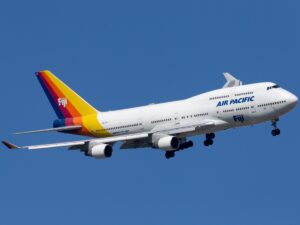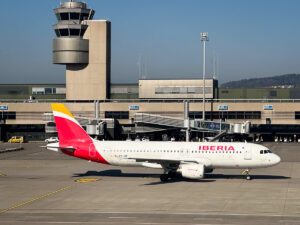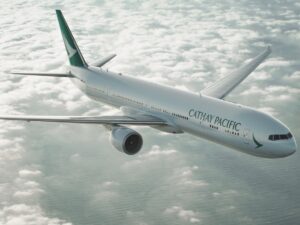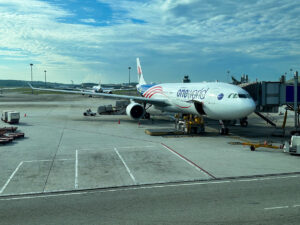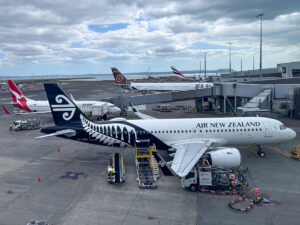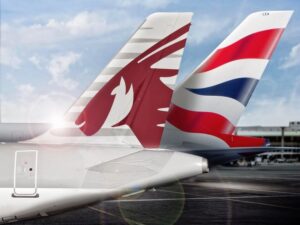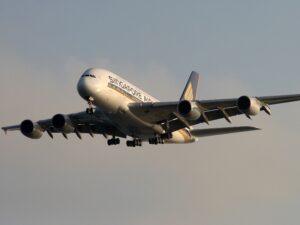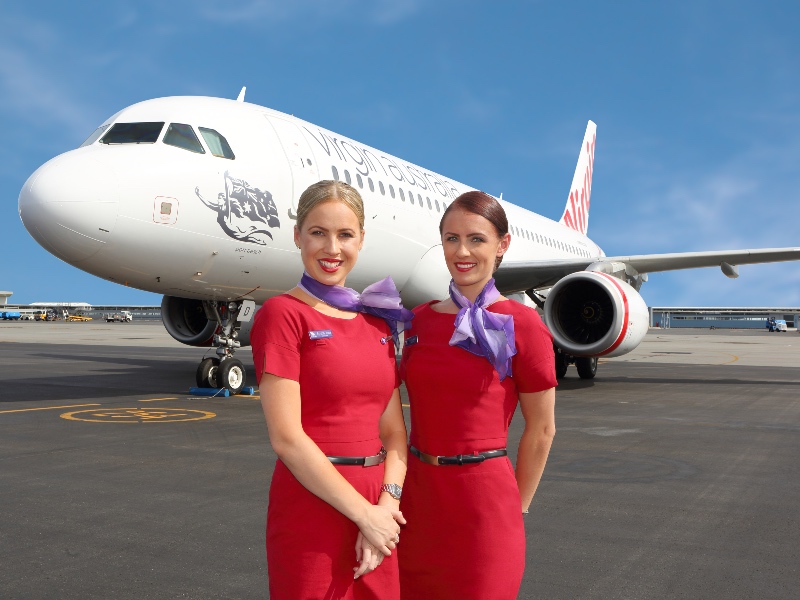
Velocity Frequent Flyer adds a “carrier charge”, on top of the other fees and taxes, when you redeem points to fly with Virgin Australia. Velocity also levies extra carrier charges on Velocity Reward Seat bookings with partner airlines including Singapore Airlines, Qatar Airways and Etihad Airways.
These surcharges range from $10 for a Virgin Australia trans-Tasman flight, through to USD320 (~AU$430) for a flight in Etihad Airways First Class.
Velocity Frequent Flyer applies these carrier charges per sector, meaning the co-payment could add up to quite a lot when booking return and connecting flights. The amount is based on the airline, route and class of travel. Infants not occupying a seat pay a reduced carrier charge of 10% of the normal price.
The addition of carrier charges does hurt the outsized value you can get with points. However, Velocity points are still very useful for getting to certain regions such as Europe in premium cabins. Velocity’s are comparable to Qantas’ carrier charges, and less than what Emirates charges for similar redemptions.
Contents
Velocity carrier charges on Virgin Australia flights
Here is a list of Velocity carrier charges as of February 2025 (all prices are in AUD unless specified):
| Route (one-way) | Economy | Business |
|---|---|---|
| Domestic Australia | $11 | $11 |
| Trans-Tasman | $10 | $10 |
| Short-haul international (other than NZ) | $35 | $70 |
| Long-haul international (above 4,001 miles) | USD60 (~$AU95) | USD230 (~$AU367) |
The slightly higher surcharge on domestic flights compared to trans-Tasman flights is due to GST being charged for domestic itineraries.
If you book a reward seat on the new Virgin Australia flights to Doha, you’ll have to pay the long-haul international charge. This is the same amount as the carrier charges on Qatar Airways flights from Australia-Doha.
Velocity carrier charges on Qatar Airways flights
Since the beginning of the Virgin Australia-Qatar Airways partnership, Velocity has applied carrier charges to reward bookings on Qatar flights.
The full list of Velocity carrier charges on Qatar Airways is below:
| One-way flight distance (miles) | Economy | Business | First |
|---|---|---|---|
| Up to 1,000 | USD25 | USD85 | USD200 |
| 1,001-2,000 | USD40 | USD165 | USD260 |
| 2,001-3,000 | USD50 | USD180 | USD280 |
| 3,001-4,000 | USD55 | USD200 | USD290 |
| 4,001+ | USD60 | USD230 | USD300 |
You’ll need to pay multiple carrier charges for itineraries with more than one flight segment. For example, when redeeming Velocity points for a one-way Qatar Airways Business Class trip from Melbourne to London via Doha, the total cost would be 158,500 Velocity points + $865.76 in taxes & carrier charges. Of this amount, USD430 (~AU$686) is carrier charges.

These charges are particularly brutal on some short intra-Middle East flights, as Qatar Airways sells their Business Class cabins as First Class on these routes.

List of Velocity carrier charges on Etihad Airways flights
Velocity began adding carrier charges to Etihad Airways redemptions without warning in 2016. These charges used to be USD50 per sector in Economy, USD205 per sector in Business or USD300 per sector in First Class.
In November 2021, Velocity changed its Etihad carrier charge pricing so that longer flights attract a higher fee, but shorter flights have a lower fee.
Here is the full list of Velocity carrier charges for Etihad flights as of February 2025. Note that Etihad and Virgin Australia are ending their partnership from 1 June 2025.
| One-way flight distance (miles) | Economy | Business | First |
|---|---|---|---|
| Up to 1,000 | USD30 | USD150 | USD280 |
| 1,001-2,000 | USD40 | USD165 | USD290 |
| 2,001-3,000 | USD50 | USD180 | USD300 |
| 3,001-4,000 | USD55 | USD200 | USD310 |
| 4,001+ | USD60 | USD230 | USD320 |
Even though the Velocity surcharges on Etihad are high, they’re still sometimes lower than the amounts you’d pay when redeeming Etihad Guest miles on the same flights, especially departing Europe.
Velocity carrier charges on Singapore Airlines flights
The October 2024 changes to Velocity Frequent Flyer also increased the carrier charges applicable to Singapore Airlines flights, across all cabins. These charges are now as follows:
| One-way flight distance (miles) | Economy | Premium Economy | Business | First |
|---|---|---|---|---|
| Up to 4,200 | USD40 | USD80 | USD120 | USD130 |
| 4,201+ | USD65 | USD130 | USD200 | USD215 |
For Business Class flights to Europe via Singapore on Singapore Airlines, you’ll pay an additional USD320 (~$AU510) in carrier charges, on top of all the other fees and taxes.

At the time of writing, Velocity members still have no direct access to Singapore Airlines First Class awards. The only way to book Singapore Airlines’ Suites or First Class using points is with KrisFlyer miles.
You can avoid paying Velocity’s carrier charges on Singapore Airlines redemptions (or book First Class) by converting your Velocity points into KrisFlyer miles. There are no extra surcharges when redeeming KrisFlyer miles on Singapore Airlines.
No carrier charges with other partner airlines
Velocity does not pass on carrier charges when you redeem Velocity points to fly with other partner airlines including United Airlines, Virgin Atlantic, All Nippon Airways, South African Airways and Air Canada. With these airlines, you would just need to pay any government taxes or other third-party fees such as airport security charges that apply to all flight bookings.
Great Credit Cards for Earning Virgin Australia Velocity Points
- Card Name
- American Express Velocity Platinum
- Earn
- 1.25
- Signup Bonus
-
100,000 bonus Velocity Points*
Apply by 30th Apr 2025
- Annual Fee
- $440 p.a.
- Read more
- View Offer
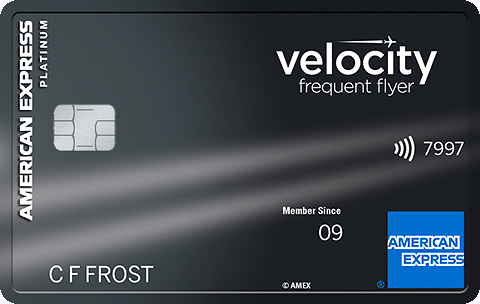
on everyday purchases
If you have a choice of airlines, you may wish to check which do apply carrier charges. For example, if flying on Velocity points between Singapore and Tokyo in Business Class, you’ll save USD120 (~$AU191) by flying ANA instead of Singapore Airlines.

Note that carrier charges are not payable when booking Virgin Australia reward flights using points in other frequent flyer programs, such as Air Canada Aeroplan or Singapore Airlines KrisFlyer.
A history of Velocity carrier charges
For many years, Qantas Frequent Flyer has imposed fairly high fuel surcharges (which it renamed to “carrier charges” in 2015) on Classic Flight Reward bookings. But Velocity didn’t have them until 2016, when it initially just started adding carrier charges on Etihad Airways redemptions.
When Velocity Frequent Flyer announced it would implement carrier charges on Virgin Australia flights as well in early 2019, it cited “local industry practice” and pointed out that “Velocity still remains very competitive and well below the price charged by our competitors”.
Velocity then increased its carrier charges for Virgin Australia flights in January 2020. It introduced them for Qatar Airways and Singapore Airlines flights in 2022, with changes to carrier charges also occurring in January 2025.
With both of Australia’s main frequent flyer programs imposing carrier charges on reward bookings, Australians may prefer to look to overseas frequent flyer programs like American Airlines AAdvantage, Alaska Airlines Mileage Plan, United MileagePlus or Air Canada Aeroplan. These don’t pass on fuel or carrier surcharges on reward bookings, including on most partner airlines.
